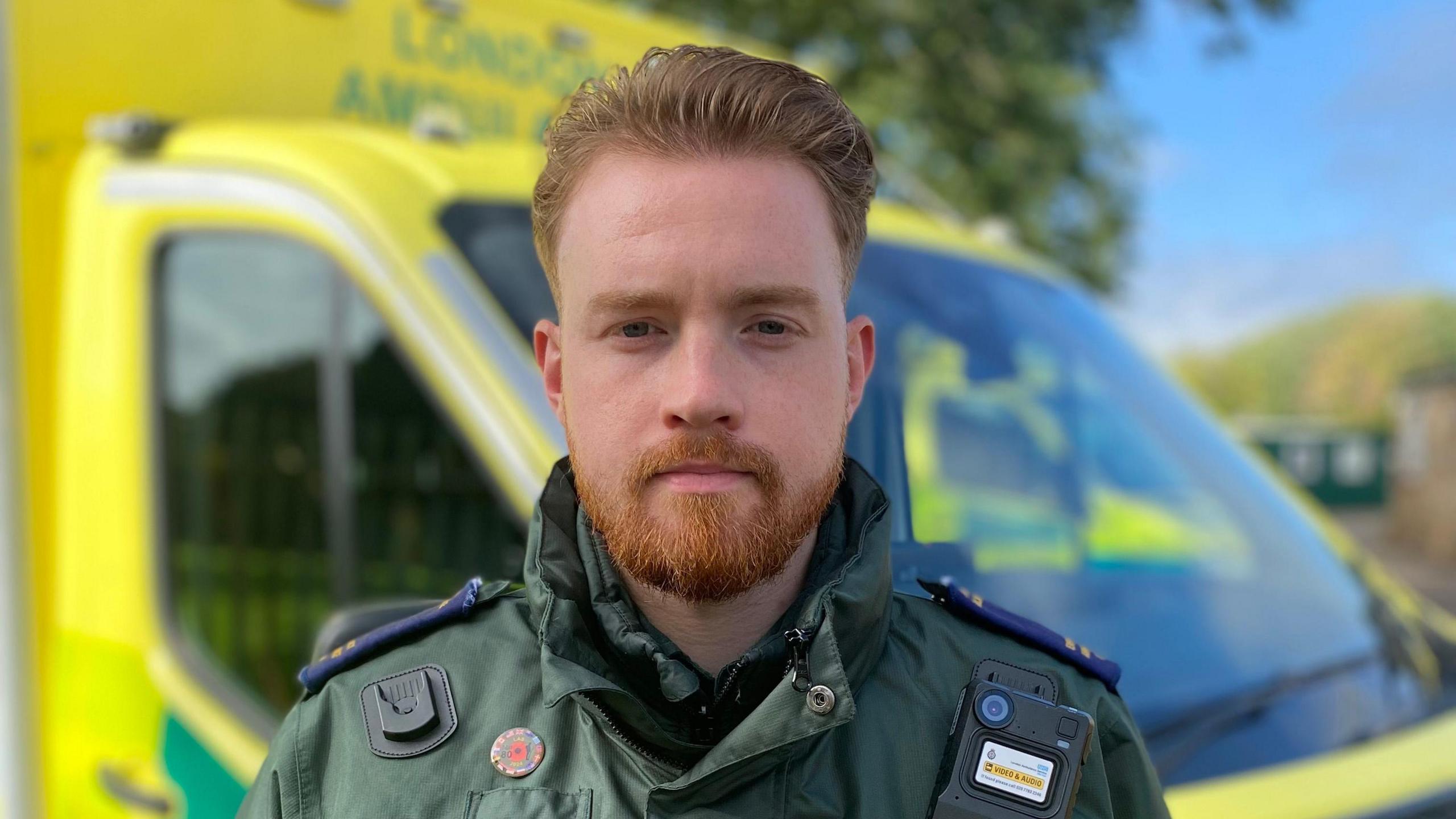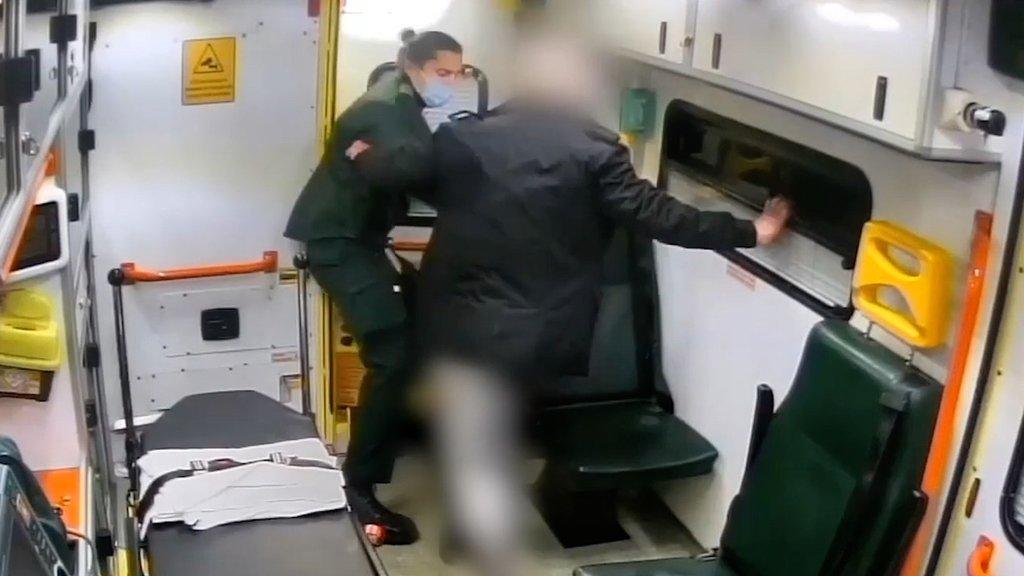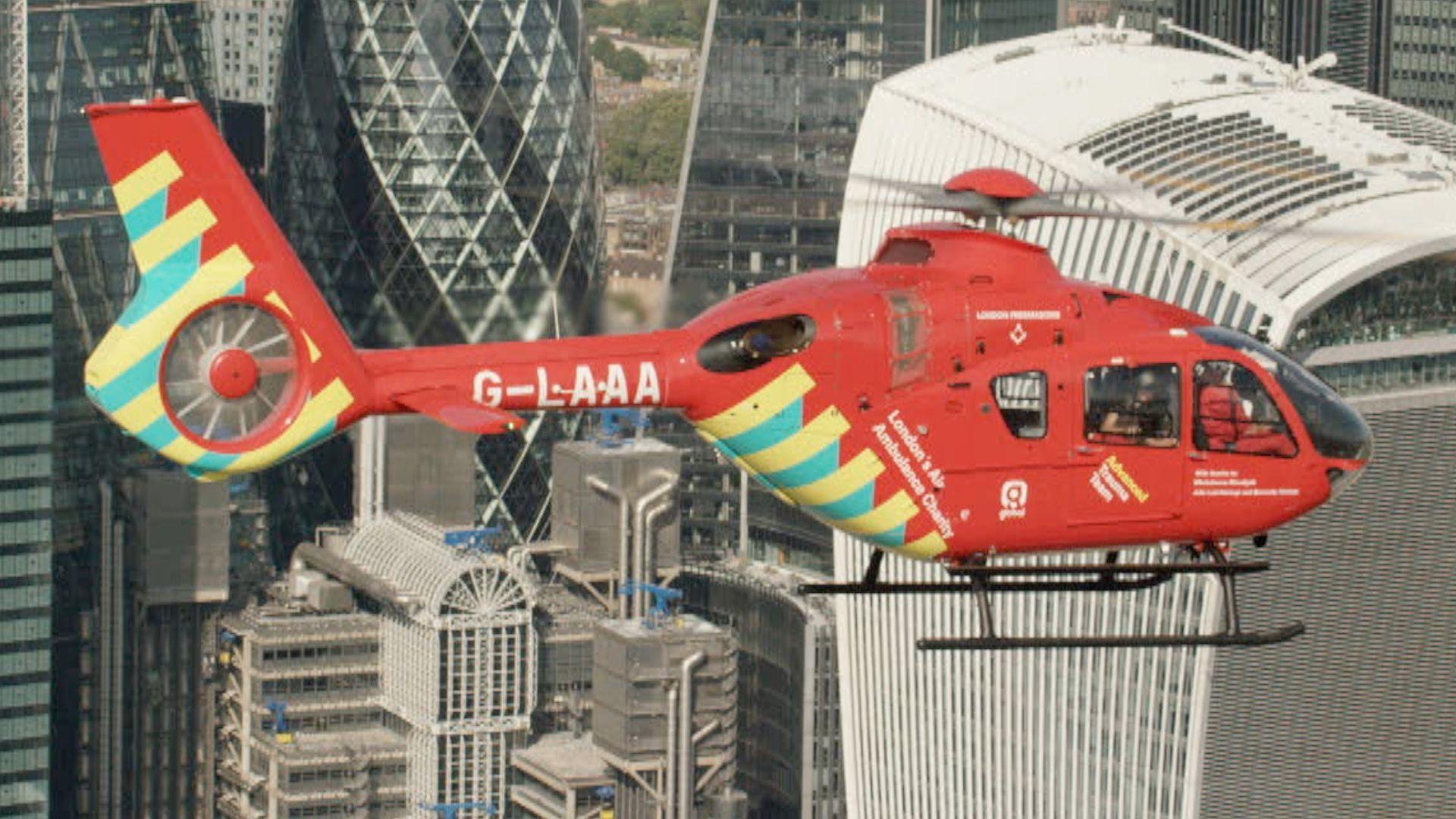'It is frightening when a patient attacks you'

Paramedic James says he was glad he was wearing a body-worn camera
- Published
"Spitting is the lowest, most disgusting and most disrespectful thing you can do – not to mention the fear of infection risk. It's worse than being punched."
James, 26, a paramedic with London Ambulance Service (LAS), is not alone in facing assaults while on the job.
According to LAS, 739 physical assaults have occurred on staff between January and November this year, 40% of which involved drugs or alcohol.
To try and protect staff, LAS has introduced body-worn cameras, which frontline staff can turn on if they feel threatened or at risk of violence, aggression or abuse.
Watch: A patient spits in the face of paramedic
James has made that decision on two separate occasions; one incident shows a patient becoming aggressive and spitting at both James and his crewmate, while a second incident shows a female patient attacking him.
"She threatened to smash our faces in and found a scoop to throw at us and then a bin," recalls James.
"You just don't feel safe in a situation like that. You can see from the video, I had been so close to her trying to calm her."
In both cases the recordings led to the perpetrators being prosecuted.
Both were charged with two counts of assault on an emergency worker and given suspended sentences. They were also ordered to pay compensation to their victims.
"It is frightening when a patient attacks you," said James, adding he was glad he was wearing the body-worn camera.
"I feel like I have a layer of protection with it on."
'Independent witness'
Ambulances are fitted with crew safety systems which include CCTV and an electronic tracking system, and have radios so crews can call for urgent help.
Chief paramedic Pauline Cranmer said body-worn cameras "act as a deterrent to prevent these incidents happening or escalating but when our crews are assaulted, the footage is critical in supporting investigations and securing convictions".
She added: "Cameras act as an independent witness and as a result offenders are more likely to plead guilty.
"This saves our crews from having to face their attacker in court and it reduces the time off work to prepare for and attend court."
James says when you're attacked, "it's difficult to want to come back to work but I have a thicker skin now and most patients aren't like this."
He adds: "Most people genuinely need us and appreciate us."
Listen to the best of BBC Radio London on Sounds and follow BBC London on Facebook, external, X, external and Instagram, external. Send your story ideas to hello.bbclondon@bbc.co.uk, external
Related topics
- Published21 December 2023

- Published29 November 2023

- Published11 September 2024
